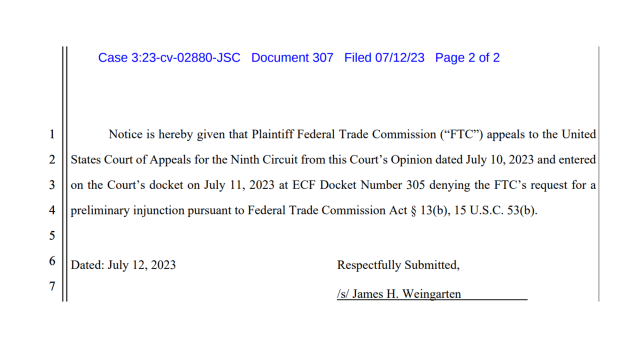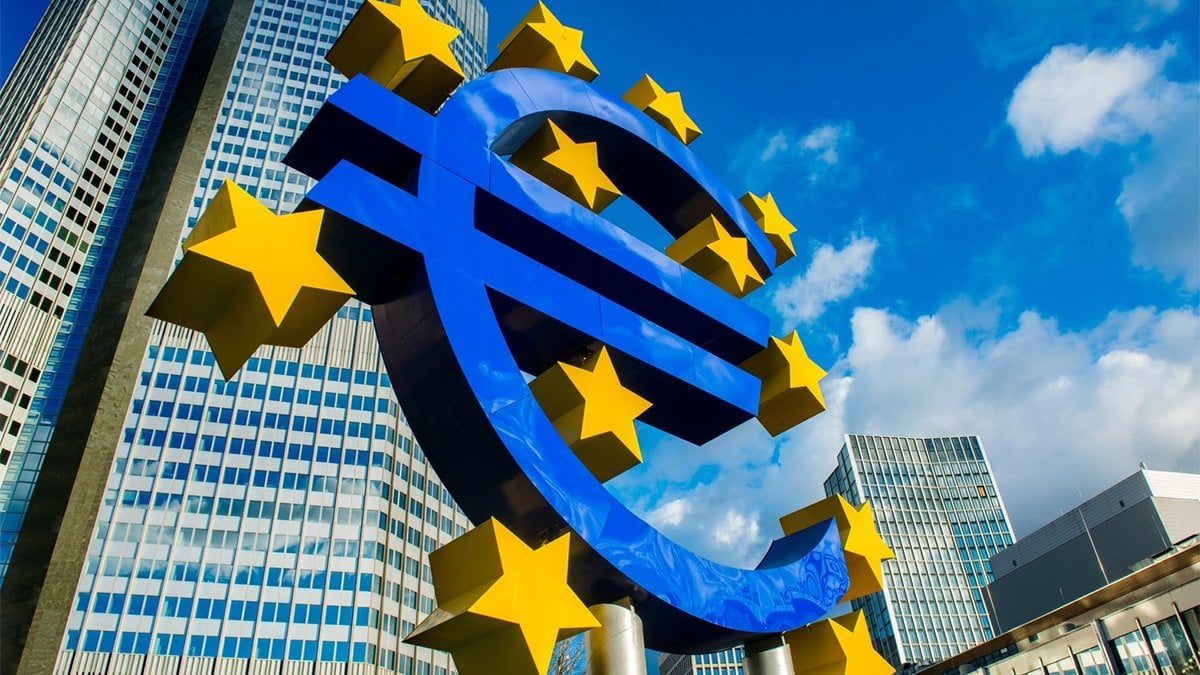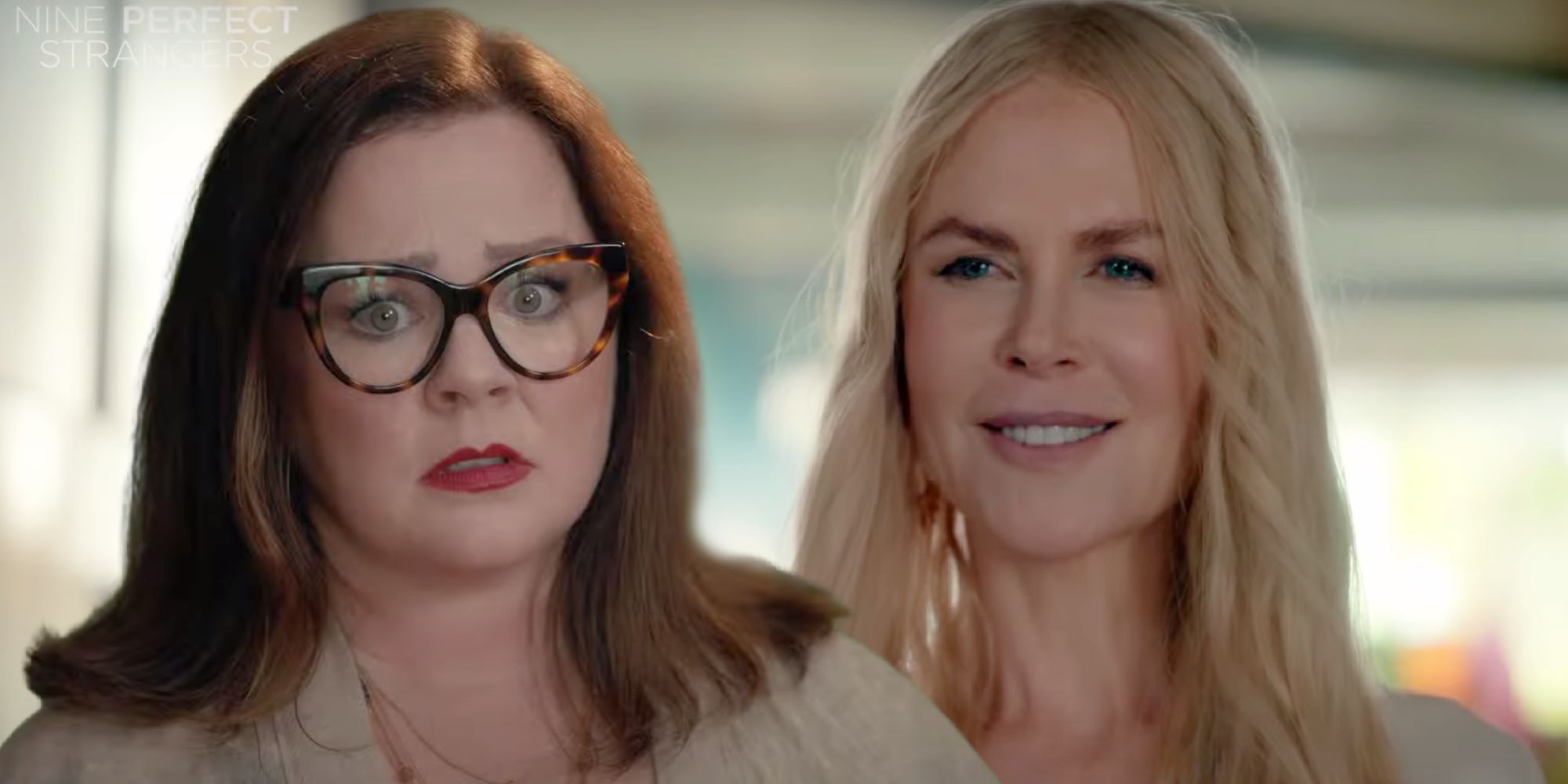FTC Appeals Activision Blizzard Deal Ruling: Microsoft Merger Uncertain

Table of Contents
The FTC's Arguments Against the Merger
The FTC's core argument against the Microsoft-Activision Blizzard merger rests on concerns about anti-competitive practices and the potential for market dominance.
Concerns about Anti-Competitive Practices
The FTC argued that allowing Microsoft to acquire Activision Blizzard would create an unfair competitive advantage, particularly within the burgeoning cloud gaming market. A key concern is the potential for Microsoft to leverage its ownership of Activision Blizzard's popular game franchises – including Call of Duty, World of Warcraft, and Candy Crush – to harm competitors. This could manifest in several ways:
- Restricting access to Call of Duty: Making Call of Duty, a hugely popular and profitable franchise, exclusive or significantly less accessible to PlayStation users would severely disadvantage Sony, a major competitor. This would likely drive PlayStation users towards Xbox, further solidifying Microsoft's market dominance.
- Leveraging market power to increase prices: The FTC expressed concerns that a combined Microsoft-Activision Blizzard would have the market power to raise prices for games and related services, ultimately harming consumers.
- Reducing innovation: A lack of competition can stifle innovation. The FTC argued that the merger would reduce the incentive for Microsoft to innovate, as it would face less pressure from competitors.
The Judge's Ruling and the FTC's Response
A federal judge initially rejected the FTC's attempt to block the merger, deeming the commission's arguments insufficient to demonstrate a significant threat to competition. However, the FTC, believing the judge's decision to be a misjudgment of the potential anti-competitive ramifications, has appealed the ruling.
- A determined appeal: The FTC's appeal demonstrates its unwavering commitment to preventing mergers that it believes will harm competition. This sets a precedent for future cases and shows a willingness to aggressively pursue regulatory action.
- Significant delay or prevention of the merger: The appeal process is likely to be protracted, potentially delaying the merger significantly or even preventing its completion altogether. This uncertainty has major implications for all stakeholders.
- Strengthening tech industry regulation: The FTC's actions signal a renewed focus on regulating mergers and acquisitions within the tech industry, potentially leading to stricter scrutiny of future deals.
Microsoft's Response and Future Implications
Microsoft, naturally, refutes the FTC's claims, arguing that the acquisition benefits consumers and promotes competition.
Microsoft's Stance on the Appeal
Microsoft maintains that the merger will not stifle competition; rather, it will drive innovation and expand access to gaming for a broader audience. They've made commitments to keep popular titles like Call of Duty available across multiple platforms.
- Maintaining cross-platform availability: A key part of Microsoft's defense is its pledge to continue offering Call of Duty on PlayStation, aiming to demonstrate that the merger won't harm consumers.
- Promoting innovation and broader access: Microsoft argues the merger will lead to advancements in gaming technology and broader access to gaming experiences for a wider audience.
- Preparing for a legal battle: Microsoft's legal team is fully prepared for a potentially lengthy and complex legal battle, indicating their resolve to see the acquisition through.
Impact on the Gaming Industry
The FTC's appeal of the Activision Blizzard deal carries profound implications for the gaming industry's future. The outcome will set a significant precedent for future regulatory oversight of mergers and acquisitions within the tech sector.
- Market uncertainty and investment volatility: The uncertainty surrounding the merger creates instability for investors and game developers, impacting future investments and project planning.
- Increased regulatory scrutiny: The appeal could trigger increased regulatory scrutiny for other large-scale tech mergers and acquisitions. This could impact future deals and shift the competitive landscape.
- Future of cloud gaming and platform exclusivity: The outcome of this appeal will significantly influence the future direction of cloud gaming and the extent of platform exclusivity in the gaming industry.
Conclusion
The FTC's appeal regarding the FTC Activision Blizzard Microsoft merger introduces considerable uncertainty for Microsoft and the future of the gaming industry. This case highlights the complexities surrounding major tech acquisitions and their potential impact on competition. The decision will set a crucial precedent, shaping regulatory approaches and market dynamics for years to come. Stay informed about this developing legal battle; the future of gaming depends on the outcome of the FTC Activision Blizzard Microsoft merger case.

Featured Posts
-
 Nea Smyrni Listeia Se Zaxaroplasteio Sokaristiko Binteo
May 27, 2025
Nea Smyrni Listeia Se Zaxaroplasteio Sokaristiko Binteo
May 27, 2025 -
 Avrupa Merkez Bankasi Tarifelerde Artisa Karsi Uyari
May 27, 2025
Avrupa Merkez Bankasi Tarifelerde Artisa Karsi Uyari
May 27, 2025 -
 New Last Friday Movie Starring Ice Cube Confirmed Deal
May 27, 2025
New Last Friday Movie Starring Ice Cube Confirmed Deal
May 27, 2025 -
 What To Stream This Weekend Nine Perfect Strangers Siren And More
May 27, 2025
What To Stream This Weekend Nine Perfect Strangers Siren And More
May 27, 2025 -
 Oscars 2024 Nora Fatehis Dazzling Golden Gown
May 27, 2025
Oscars 2024 Nora Fatehis Dazzling Golden Gown
May 27, 2025
